Emirates will acquire more than 300,000 gallons (1.14 million litres) of blended sustainable aviation fuel from Shell Aviation, with supplies flowing to the airline’s home base, Dubai International Airport, by the end of this year. As part of the agreement, Emirates will track delivery and its use data through the blockchain-powered SAF solution Avelia. The SAF will be the first delivered through the fuelling system at the airport, the world’s largest international hub. The deal follows a demonstration flight earlier this year by an Emirates Boeing 777 with one engine 100% fuelled by SAF, and the airline’s establishment of a $200 million investment fund to support R&D into projects designed to reduce the impact of fossil fuels in aviation. Dubai will next month host the Dubai Airshow, the third ICAO Conference on Aviation and Alternative Fuels and the UN’s COP28 climate summit.
The SAF deal coincides with the reactivation after Covid-19 of most of Emirates’ passenger fleet of Airbus A380s and Boeing 777-300ERs. It is the largest operator of both types, with a large proportion of its flights on long-haul routes, for which SAF is considered the only realistic pathway to decarbonisation.
While details of the Shell agreement, including the source of the fuel, feedstock type and delivery schedule were not disclosed, the companies said Emirates would purchase the SAF and the associated environmental attributes through the Avelia programme operated by Shell Aviation and Accenture, which authenticates and documents SAF from production to introduction into airport fuel infrastructure.
Additionally, backed by Energy Web and American Express Global Travel, Avelia connects airlines and the procurement arms of corporations, enabling those businesses to contribute to the cost of SAF through an authenticated book-and-claim process, to help compensate for the proportion of flight emissions generated by their employees’ business travel.
As well as enabling Emirates to reduce its Scope 1-related emissions from flight operations, the Scope 3 environmental attributes associated with the fuel will be purchased by Shell Corporate Travel, not only to help recompense emissions from corporate flying by its own employees, but also to demonstrate how book-and-claim programmes can connect airlines and corporations, and enable both to leverage the environmental benefits of SAF.
Sir Tim Clark, Emirates’ President – who has previously expressed doubts about aviation’s ability to achieve net zero emissions by 2050 – welcomed the Shell deal and flagged more SAF agreements.
“We are proud to work in partnership with Shell to make a SAF supply available for Emirates in Dubai for the first time,” he said, “and to utilise the Avelia platform that provides business travellers the flexibility to align their sustainability targets and reduce their environmental footprint when travelling.
“We hope that this collaboration develops further to provide an ongoing future supply of SAF at our hub, as there are currently no production facilities for SAF in the United Arab Emirates.
“Aviation plays a vital role in Dubai and the wider UAE economy, and we look forward to continue collaborating with like-minded organisations and government entities to look at viable solutions that introduce more SAF, a fuel that is currently extremely limited in supply, into the aviation fuel supply chain and support Emirates’ efforts to reduce emissions across our operations.”
Chu Yong-Yi, VP of Shell Corporate Travel, said the Emirates SAF deal was a step forward for aviation in the UAE, adding: “Emirates and Shell have a long-standing commercial relationship, and it is fantastic to build on this to now work together on decarbonisation.
“Enabling SAF to be suppled at DXB (Dubai’s main airport) for the first time is an important milestone, and a perfect example of how the different parts of the aviation value chain have a role to play in unlocking progress on SAF. We hope that this can act as a springboard for more action on SAF across the aviation industry in the UAE and region, delivering another step forward for our net zero emissions journey.”
In May, Emirates announced a three-year, US $200 million commitment to fund research and development projects which focus on reducing the impact of fossil fuels in the aviation industry. The airline specifically identified partnerships with organisations focused on advanced fuel and energy technologies.
Announcing the programme, Clark said Emirates “looked long and hard at the reality we face in commercial aircraft and engine technology, fuel supply chain and our industry’s regulatory and eco-system requirements. It’s clear that with the current pathways available in terms of emissions reduction, our industry won’t be able to hit net zero targets in the prescribed timeline.
“We believe our industry needs better solutions, and that’s why we’re looking to partner with leading organisations on R&D. Our aim is to contribute meaningfully to practical solutions for the long-term sustainability of commercial aviation.”
The airline has contributed to the development of the UAE’s Power-to-Liquid fuels roadmap and participated in the UAE’s National Sustainable Aviation Fuel Roadmap launched in January.
While it has previously used SAF to part-fuel specific flights including new aircraft deliveries, Emirates has focused mostly on large-scale fleet renewal and operational initiatives to reduce flight emissions. It has more than 200 new widebody jets on order, including Airbus A350, Boeing 787 and 777X passenger jets, and a mix of new 777 freighters and passenger-to-freight conversions.
Image: Emirates


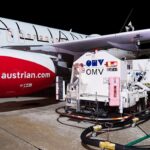
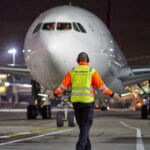
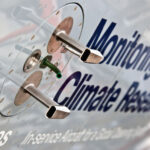


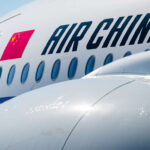
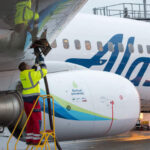
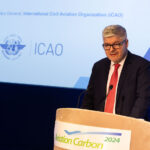
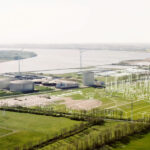
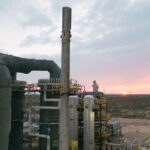
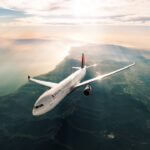
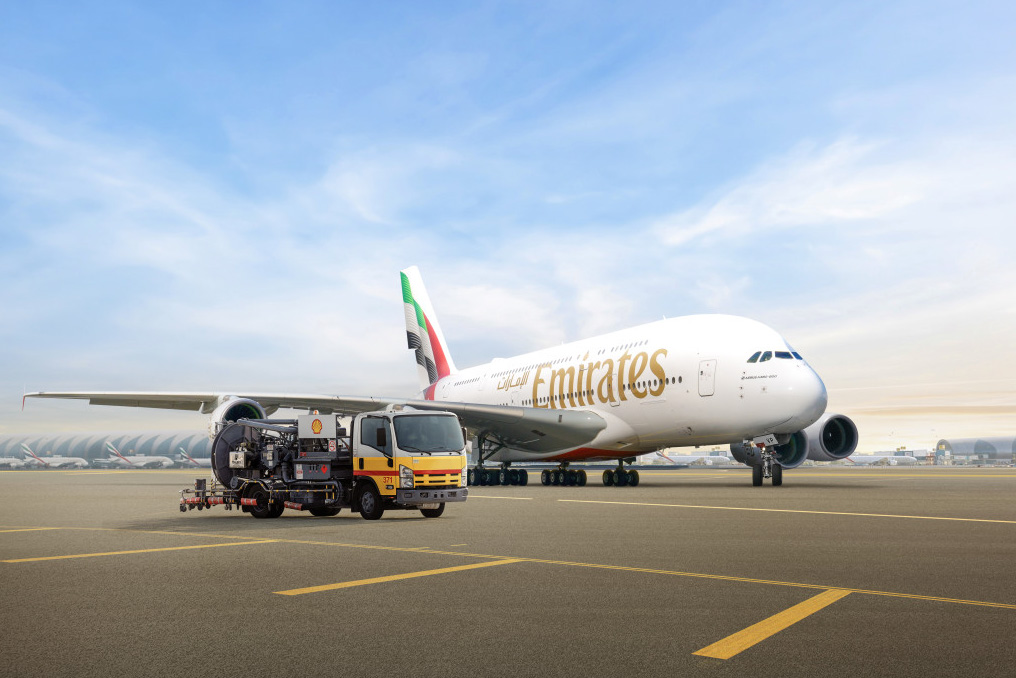


More News & Features
Progress on decarbonising the airline sector has been slow this year, says IATA chief
EASA releases status report on Europe’s SAF production and readiness to meet blending targets
New partnerships formed to drive e-SAF production in Nordic markets
IAG continues to go big on e-SAF as it inks 10-year offtake agreement with Infinium
US on the pathway to achieving its 2030 SAF Grand Challenge target, says DOE report
Advocacy group launches to speed up production and use of SAF across Asia